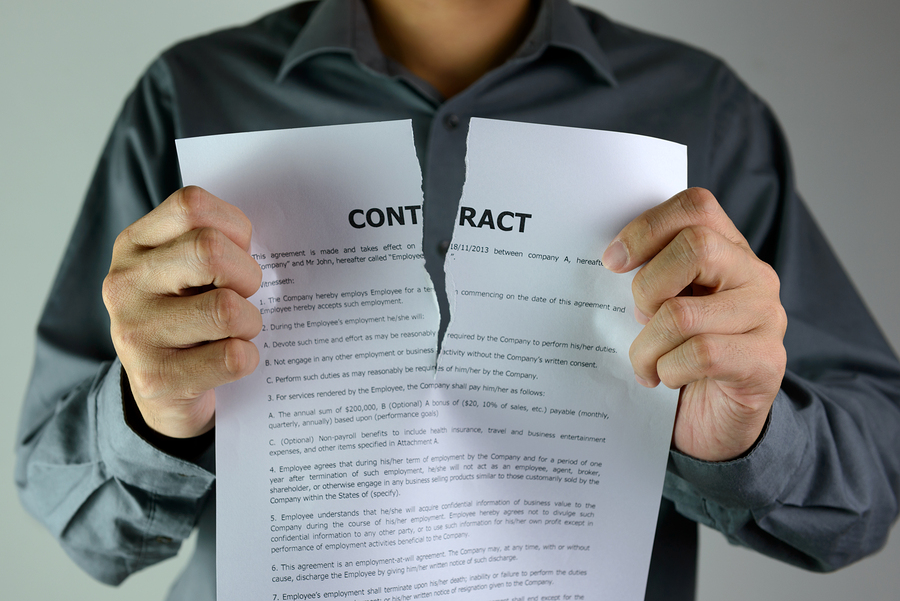Why Sell Your Lease
There are many reasons why you should, and should not, consider selling your wireless lease today. Selling your lease is not a one-size-fits-all solution for all wireless landlords. You should consider both sides of the coin before making any decisions.
Lump Sum Now or Spread out over 30 Years?
If you win the lottery, you can choose to receive your money in one lump sum payment immediately or have it doled out in monthly installments for thirty years (see Zacks Finance Annuity). The same concept applies to your monthly wireless rent payment. Wireless carriers prefer that you receive monthly payments rather than a lump sum. Their rationale is that you will be more cooperative and vested in their interest if you are getting monthly rent, but the choice is yours to make. Factors to consider include the following:
- Do you plan on owning your property for the next thirty years?
- Do you plan to retire in the next ten years?
- Could you withstand the risk that the lease will be terminated in the next thirty to ninety days?
- Do you need lump sum cash today?

Sell Your Property Twice
If you contemplate selling your property in the future, seriously consider selling both assets (the cell site lease and the underlying property) in two separate transactions to maximize your profits. Besides the real estate property value associated with your land and improvements, your property also has a secondary value as a wireless facility. At times, wireless facilities such as yours can have a value greater than the land plus improvements originally on the property. Many real estate purchasers fail to understand the true value of a cell site, and they will discount its value in a real estate transaction. This is why it is important that you keep both transactions separate to maximize your returns.
You Want The Cash Today
To maximize the value of your lease, we concentrate only on buyers/investors who understand the wireless industry and its solid standing in the American economy. Consumers are more likely to stop paying their mortgage, car, or make credit card payments along with power and water bills before they stop paying their cell phone bills. A smartphone has become essential in everyday life as a convenience, social status symbol, and professional tool as well as an entertainment and personal safety device. Our investors understand the role that cell phones have in American society and the low-risk status of Fortune 500 wireless tenants that they are willing to pay a premium to purchase your lease and wait many years to recover their investments. Because of the low interest rate environment since the 2008 recession, investors are looking for ways to get higher returns for their funds. If you need cash today for any reason, many investors are willing to pay you a lump sum amount and will wait to recover their money over time if they can get a better rate of return on their investment than is currently offered in such income-producing investments as bonds, money market funds, and other diversified real estate investments. They are also willing to assume the risk that a cell site may be terminated for any reason (more below). Learn more about why carriers terminate leases.
CellWaves’ history with the industry since its inception allows us to know all the relevant players for the maximum benefit of our clients. We won’t nickle-and-dime our clients by offering to close a deal quickly and offering 130X–150X monthly rent. We will not work with investors (lease buyers) if they do not start at 180X offer on your lease. Period. But before we put your rent out for bids, we first prepare it for sale by looking for ways to increase your rent as much as possible. Every $100 in increased rent we equate to $18,000 in increased sale price for your lease. A longer time is needed to consummate this transaction, but you benefit immensely by our approach, having to wait a few extra weeks for us to “dress up your lease” for sale.

Early Lease Termination Allowed In All Wireless Leases
Risk of Loss via Lease Termination
While the risk of having your site deactivated by a carrier is low, it is not zero. It is much the same as having fire insurance on your home even though statistically it is unlikely that your house will be destroyed in a fire. Yet, we buy fire insurance because we can’t afford the loss. As landlord, however, you cannot purchase insurance on your revenue stream, but if you sell your lease, the risk of loss now shifts to the buyer of your lease. Whatever happens after you receive your lump sum is no longer your problem. The buyer will assume the risk that the carrier will terminate the lease anytime in the future using their 30-day termination notice. But why would a carrier terminate their lease with you? A carrier would do so for two primary reasons:
(1) Mergers and Acquisitions. The industry is in constant flux. After many years of consolidation, mergers are still taking place. Sprint recently became 100% owner of Clearwire, causing many of the duplicating Clearwire cell sites to be terminated. In 2012, AT&T attempted to purchase T-Mobile. Even though the failed attempt cost AT&T $10B in down payment money, the industry remains dynamic. This is mostly because the U.S. market is saturated with cell phone users (there are more subscribers than people in the U.S.). The only way to grow the business is to steal from another wireless carrier. This “churn” is very expensive to the carriers, and they see consolidation of companies as a way to combat churn in the industry. This consolidation means less churn (customers jumping from one carrier to another), fewer cell sites, fewer employees, less power, less telco, less administration—thus, greater profit. While the percentage of sites deactivated due to mergers and acquisitions is low industrywide, but to the affected landlord it could be 100% of his wireless rent revenue.
(2) Landlord bankruptcies. If a landlord is going through a bankruptcy proceeding, any rights anyone has on the property, including creditors, must now line up in bankruptcy court. The outcome is very risky for the carrier, and they will likely come out of it with diminished rights to the lease. Rather than wait for an unpredictable outcome from the legal proceedings, carriers will likely seek to replace the site with a more reliable location. Carriers do this because they need to protect the integrity of their system performance. They do not want to risk that 5-bar status and will spend a substantial amount of money and effort to replace it, but they never do so out of an emotional response to a landlord not willing to lower the rent or is asking for more rent. The challenge is knowing how to approach this topic with the carriers and knowing what is the acceptable rent range of a particular cell site.
Improve Your Business
Many landlords find that getting a lump sum payment today helps them grow their business or consolidate debt to improve their financial standing. Landlords cannot obtain loans against the future revenue of cell sites because of the 30-day termination clause. Banks refuse to take risks on contracts that carriers can terminate anytime. Therefore, the only source of immediate revenue against the stream of future rent revenue is by selling your wireless lease.
Your Age
If you are younger and you do not intend on selling your property in the future, it is highly likely that you will benefit from the full extent of the lease terms for the next fifty years. If you are older, however, and looking to retire or intending to use the funds now while you can, taking the lump sum payout may make sense for you. The reality is that if you are fifty-five years old and your lease term extends for thirty years, you would get the full benefit of your lease if you wait for monthly payments when you reach eighty-five. Many of our clients consider the reality of their health, their available time to travel and enjoyment of their freedom, and decide accordingly.
Tax Implications
Tax implications are involved when you sell your lease. We suggest that our clients consult with their tax professionals to discuss implications to 1031 exchange, capital gains, and other tax consequences involved in all financial transactions.
Lock In Today’s Price
Like any commodity, price will fluctuate based on a number of factors. Interest rates, available buyers, alternative competing investment vehicles, economic conditions, and real estate pricing all affect what Wall Street buyers are willing to pay for your lease. Since 2011, lease buyout purchases have remained elevated, much in line with national real estate prices in a low interest rate environment. A reduction in real estate value or increased interest rates will certainly have an adverse effect on the price of lease buyouts. Many of our clients want to lock in today’s price while real estate property values are elevated to cash in at all-time high wireless lease prices.
